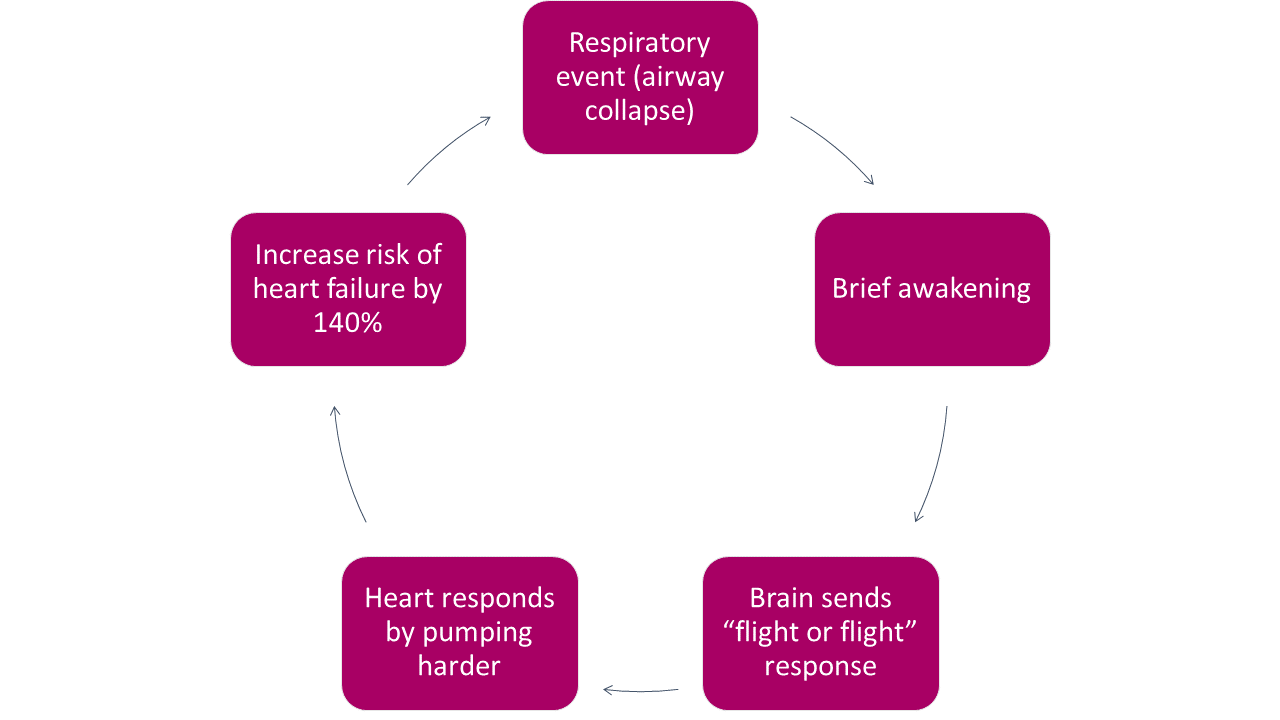Sleep apnea is a common disorder that causes breathing to repeatedly stop or get very shallow. Breathing pauses can last from a few seconds to minutes. Roughly 22 million Americans suffer from a type of sleep apnea.
Types of Sleep Apnea
Sleep apnea has two main domains: Obstructive and Central.
Obstructive sleep apnea (OSA) is the more common form of apnea that happens in the airway when the soft tissues like the tongue and soft palate relax too much. As this happens, breathing becomes increasingly difficult. Roughly 20 percent of American adults have effects of OSA — with 85 percent of these cases undiagnosed.
Central based sleep apnea is when your brain fails to send a signal telling your body to inhale.
Risk Factors
Independently of each other, OSA and obesity can negatively impact heart function. Sleep disorders can cause high cholesterol, hypertension, diabetes, and possible stroke.
Undiagnosed sleep apnea not only interferes with your daily ability to stay alert, but it can also have a detrimental effect on your overall health. The illustration below shows the constant loop cycle for people with sleep apnea.

After a respiratory event, our “fight or flight” response is activated by the lack of oxygen in our blood. As this happens, our sympathetic nervous system becomes activated. This is the same system that regulates our body's reactions to stress, fear, and scary situations. Thankfully, this is also what triggers your body to gasp for air while you are asleep. Some people may report that this action wakes them from their sleep.
Signs and Symptoms
There are several signs and symptoms of sleep apnea disorders to be aware of, including but not limited to:
- Excessive daytime sleepiness
- Gasping while asleep
- Insomnia
- Irritability
- Lack of concentration
- Snoring
- Teeth grinding (Bruxism)
If any of this information pertains to you, a bed partner, or a loved one, starting a conversation with them about sleep health/sleep hygiene is a good place to begin.
If you experience any of the symptoms above, asking your primary care provider about scheduling a sleep study is a good first step. There are many ways to treat sleep apnea and other sleep disorders.
For information about sleep disorders and the Covenant HealthCare Sleep Center, visit www.covenanthealthcare.com/ch/sleepcenter